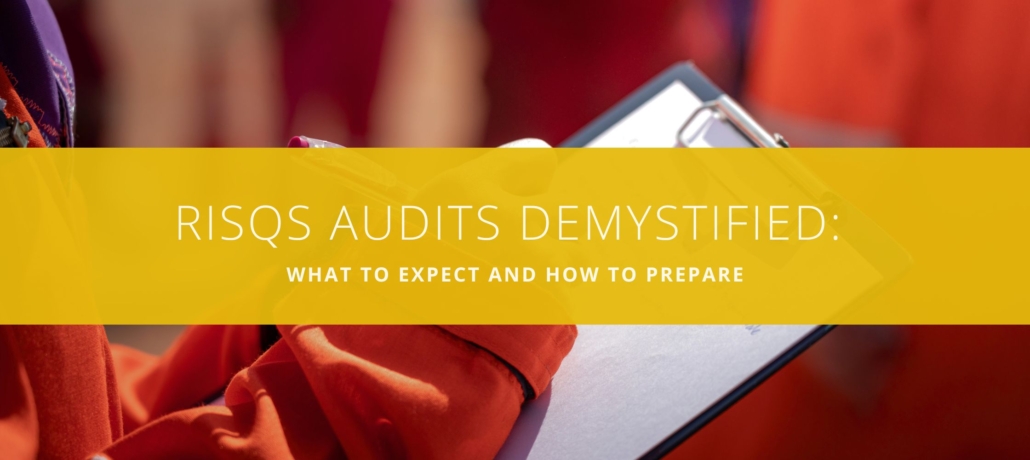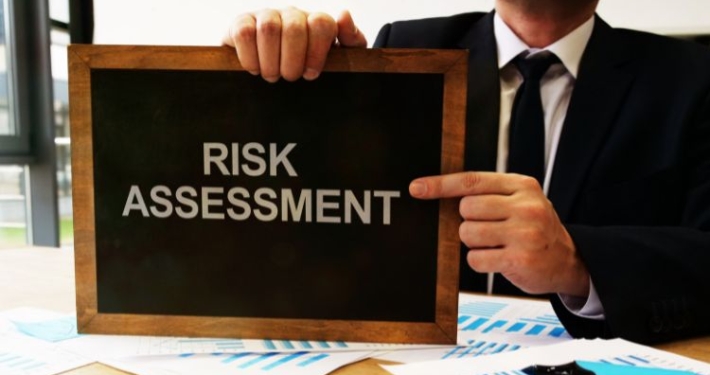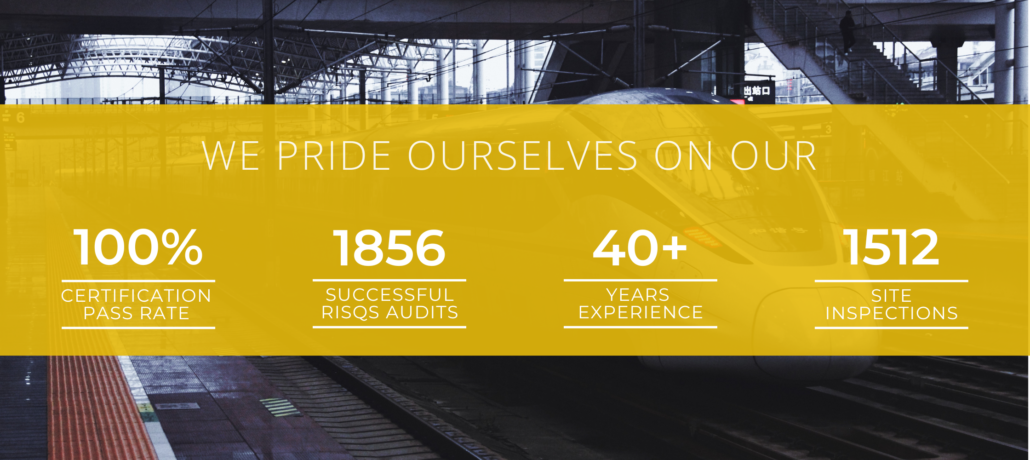RISQS Audits Demystified: What to Expect and How to Prepare
Introduction:
Understanding what’s in a RISQS (Railway Industry Supplier Qualification Scheme) audit is crucial for businesses operating within the UK rail sector. These audits ensure that suppliers meet the high standards required for safety, competence, and quality, making them a key component of maintaining operational integrity in the industry. This article aims to demystify the RISQS audit process, outlining what to expect and how to prepare effectively.
What’s in a RISQS Audit?
A RISQS audit is an assessment designed to evaluate a company’s adherence to the stringent standards set by the UK rail industry. The audit covers various aspects of business operations, including:
-
Health and Safety Compliance:
- The audit examines the company’s health and safety policies, procedures, and records. This includes risk assessments, incident reporting mechanisms, and the implementation of safety measures.
- Auditors look for evidence of a proactive safety culture, where employees are trained and aware of safety protocols, and regular safety drills and reviews are conducted.
- Additionally, the auditors may check for compliance with specific safety regulations and industry best practices, ensuring the company can manage and mitigate potential hazards effectively.
Quality Management:
-
- Quality management systems are a major focus, with auditors checking for compliance with ISO standards (such as ISO 9001) or equivalent quality frameworks.
- This involves reviewing documentation related to quality control processes, product or service specifications, and continuous improvement practices.
- Auditors assess how effectively the company monitors quality metrics and addresses non-conformances. They may also review customer feedback mechanisms and how the company uses this feedback to drive improvements.
Competency Verification:
-
- The audit assesses how the company verifies the competence of its employees and contractors. This includes examining training programs, certification records, and performance evaluations.
- Auditors ensure that staff qualifications meet the necessary standards and that there is a structured process for ongoing professional development.
- This section of the audit also looks at succession planning and the ability of the company to maintain a competent workforce as personnel change over time.
Environmental Management:
-
- Environmental practices are scrutinised to ensure compliance with relevant legislation and industry standards. This includes waste management, energy use, and policies to minimise environmental impact.
- Companies may need to demonstrate how they manage environmental risks and implement sustainable practices.
- Auditors also check for the presence of an Environmental Management System (EMS), such as ISO 14001, and assess how well it is integrated into the company’s operations.
Operational Processes:
-
- The audit evaluates the overall efficiency and effectiveness of the company’s operational processes. This includes supply chain management, equipment maintenance, and resource allocation.
- Auditors look for robust systems that support operational resilience and adaptability to industry changes.
- This includes assessing the company’s risk management strategies, business continuity plans, and how well these are tested and updated.
How to Prepare for a RISQS Audit
Conduct a Pre-Audit Assessment:
- Before the official audit, conduct an internal review to identify and address potential areas of non-compliance. This can help uncover gaps in documentation, training, or operational processes.
- Use a comprehensive checklist that mirrors the RISQS audit criteria to ensure that no area is overlooked.
- Engage key team members from different departments to provide a holistic view of the company’s compliance status.
Organise Documentation:
- Ensure that all necessary documents are current and organised. This includes health and safety records, quality management documents, training logs, and environmental management documents. Use a centralised system to store and manage these records.
- Digital document management systems can streamline this process, making it easier to update and retrieve documents as needed.
- Regularly audit your documentation to ensure it remains up-to-date and relevant.
Employee Training:
- Provide training and refreshers to ensure all staff are familiar with compliance requirements and audit procedures. This includes safety protocols, quality standards, and environmental practices.
- Develop a training schedule that includes regular updates and assessments to keep skills and knowledge current.
- Use a variety of training methods, such as workshops, e-learning, and on-the-job training, to cater to different learning styles.
Engage with a Consultant:
- Consider hiring a consultancy firm specialising in RISQS compliance. They can provide expert guidance on preparing for the audit, conducting internal audits and implementing necessary improvements.
- Consultants can also offer insights into industry best practices and emerging trends that may affect your compliance requirements.
- They can help develop a tailored action plan to address any identified gaps and ensure you are fully prepared for the audit.
Regular Updates and Reviews:
-
- Compliance is an ongoing process. Regularly review and update your policies, procedures, and training programs to reflect changes in industry standards or regulations.
- Establish a schedule for regular compliance reviews and audits to ensure continuous improvement.
- Encourage a culture of continuous improvement by involving employees in identifying and implementing enhancements to your compliance processes.
Conclusion:
Understanding what’s in a RISQS audit and how to prepare for it is essential for businesses looking to operate in the UK rail industry. By following these steps and maintaining rigorous standards, companies can ensure they meet the requirements of the RISQS scheme, and pass the audit without issue, enhancing their credibility and opening up new business opportunities. For comprehensive support and expert guidance in preparing for a RISQS audit, consider partnering with a specialised consultancy to navigate this critical process with confidence.
With considerable experience in the rail sector, Simpson Consultancy offers unparalleled expertise in guiding businesses through the RISQS audit process. Our team is dedicated to helping you achieve and maintain compliance, ensuring your operations meet the highest standards of safety and quality. Contact us today for a free, no-obligation quote, and let us help you unlock the full potential of RISQS certification for your business.







